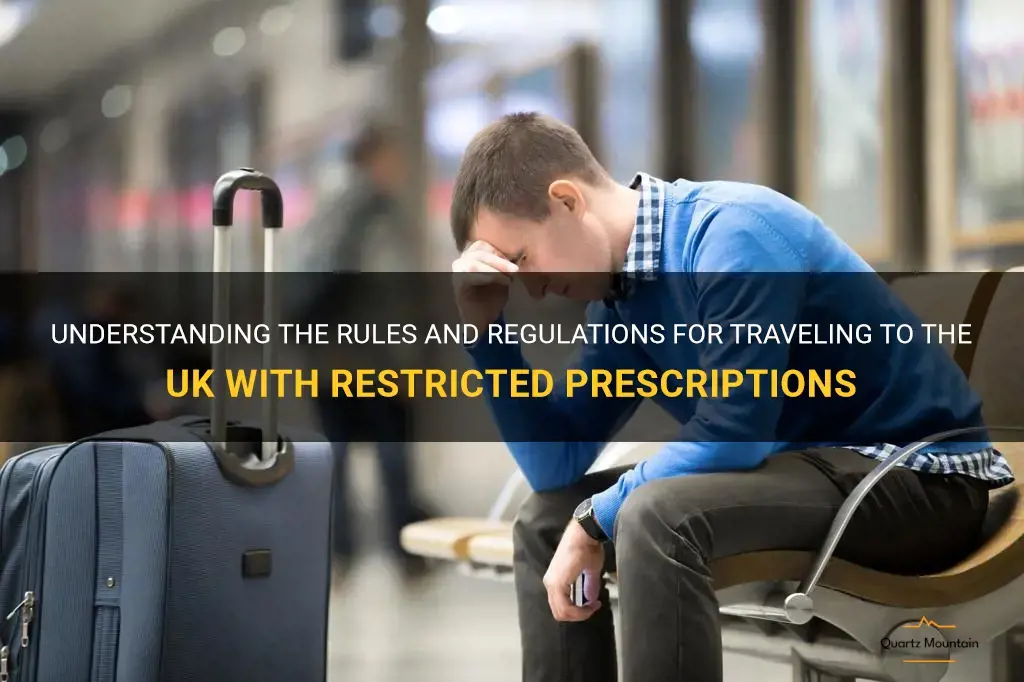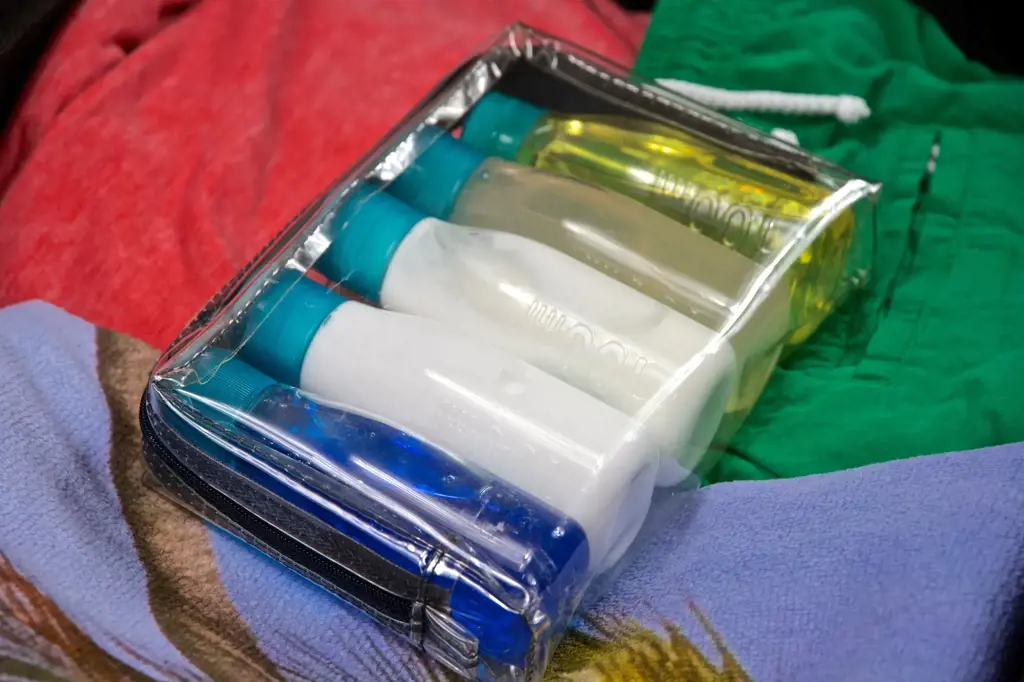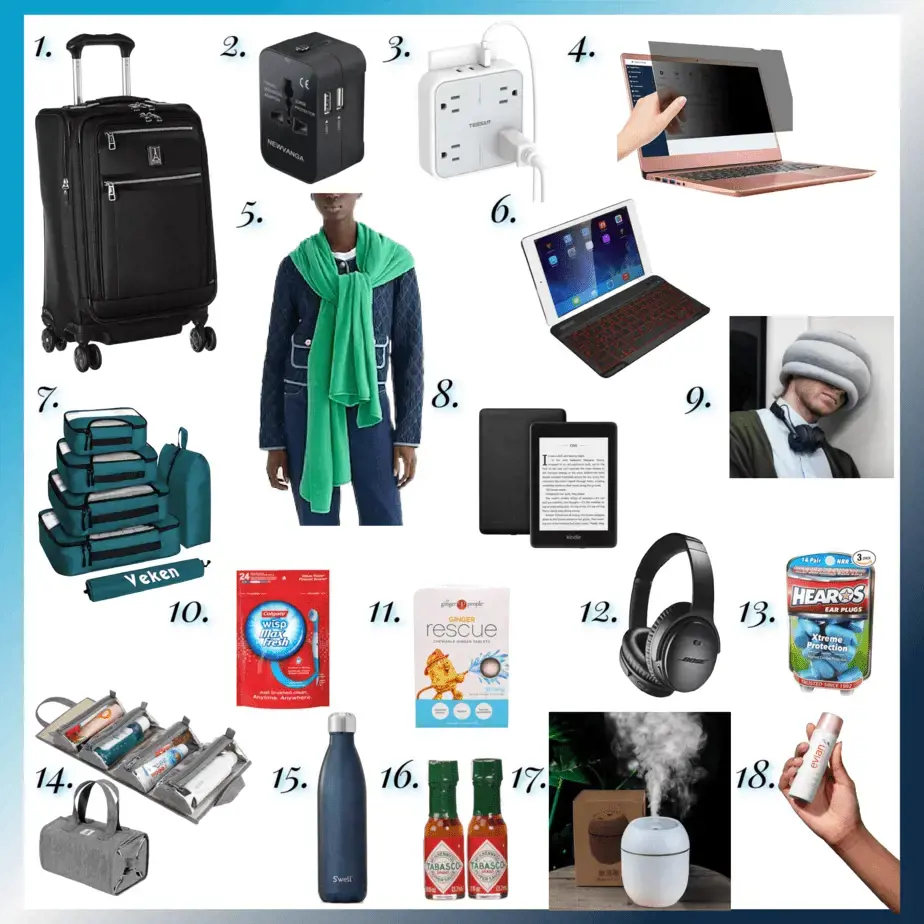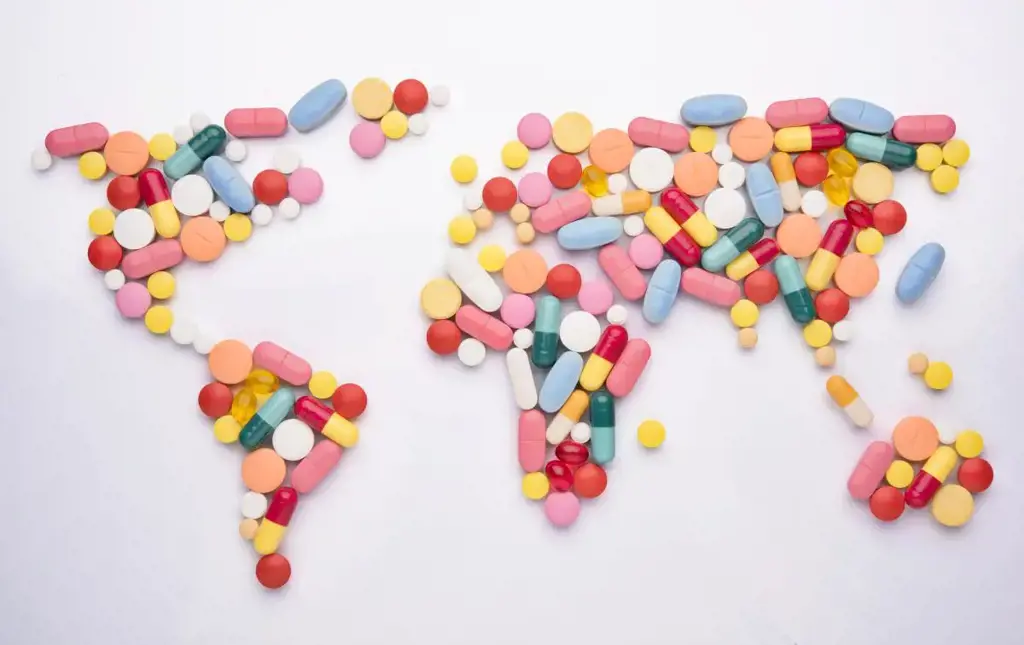
Travelling can be exciting and adventurous, but what happens if you need your prescribed medication while abroad? In the case of the United Kingdom, certain medications are restricted or controlled, meaning you may need to take extra precautions or even make alternative arrangements. Understanding the rules and regulations surrounding restricted prescriptions when travelling to the UK is essential to ensure you have a stress-free trip while managing your health needs. So, let's dive into the world of restricted prescriptions and discover the necessary steps to make your journey to the UK a smooth and well-prepared one.
What You'll Learn
- What is the process for bringing restricted prescriptions into the UK when traveling?
- Which medications are considered restricted prescriptions that may require special permission for travel to the UK?
- Are there any specific requirements or documentation needed to bring restricted prescriptions into the UK?
- Can travelers bring a supply of restricted prescription medications for personal use, or do they need to have a specific medical reason for bringing them?
- Are there any restrictions or limitations on the quantity of restricted prescription medications that can be brought into the UK when traveling?

What is the process for bringing restricted prescriptions into the UK when traveling?

When traveling to the UK, it is important to understand the process for bringing restricted prescriptions into the country. This can help ensure that you have access to the medications you need while adhering to the rules and regulations set by UK customs. In this article, we will outline the step-by-step process for bringing restricted prescriptions into the UK and provide examples to help illustrate the information.
Step 1: Research the restrictions and regulations
Before you embark on your trip to the UK, it is essential to research the specific restrictions and regulations around bringing medications into the country. Different medications may have different requirements, and there may be limitations on quantities allowed. The UK government website and the Department of Health and Social Care can provide up-to-date information on the rules for bringing medications into the country.
For example, let's say you are traveling with a prescription medication for a chronic condition such as diabetes. You would need to ensure that this medication is permitted in the UK and find out the quantity that is allowed for personal use.
Step 2: Carry necessary documentation
To avoid any potential problems at customs, it is important to carry the necessary documentation related to your prescription medications. This includes a letter from your doctor or healthcare provider detailing your medical condition, the prescribed medication, and its purpose. This letter should also state that the medication is for personal use and not for distribution.
Continuing with the diabetes medication example, you would carry a letter from your doctor explaining your condition and the need for the medication. This can help customs officials understand the purpose of the medication and alleviate any concerns they may have.
Step 3: Declare your medications upon arrival
When you arrive in the UK, it is crucial to declare your prescription medications to the customs officials. This can be done by completing a Customs declaration form upon arrival. It is essential to be honest and transparent during this process to avoid any potential legal or regulatory issues.
For instance, if you are asked to fill out a customs declaration form upon arrival at the airport, you would list the prescription medication you are bringing with you and any other relevant information requested on the form.
Step 4: Check if your medication requires a license
Some prescription medications may require a license to be brought into the UK. This is particularly true for controlled substances or medications with a higher potential for abuse. In such cases, you would need to obtain a license from the Home Office before your travel to the UK.
For example, if you are traveling with a medication that falls under the classification of a controlled substance, such as certain pain relievers or stimulants, you would need to apply for a license in advance to legally bring it into the country.
Step 5: Follow any additional requirements or restrictions
Depending on the nature of your medication, there may be additional requirements or restrictions to comply with. This could include carrying medications in their original packaging, labeling medication containers clearly, or being mindful of the quantity allowed.
In the case of liquid medications, there may be restrictions on the volume allowed in your carry-on luggage. It is important to check the specific requirements for each medication to ensure compliance.
In conclusion, bringing restricted prescriptions into the UK when traveling involves thorough research, proper documentation, declaration upon arrival, and compliance with any additional requirements or restrictions. By following these steps, you can ensure that you have access to the medications you need while traveling and avoid any legal or regulatory issues.
Understanding the Restrictions on Travel Along Highway 70
You may want to see also

Which medications are considered restricted prescriptions that may require special permission for travel to the UK?

If you are planning to travel to the UK and are taking medications, it's important to be aware of any restrictions or special permissions that may be required. Some medications are considered restricted prescriptions, meaning they are controlled substances or have the potential for misuse. In these cases, you may need to obtain special permission or documentation to bring these medications into the country.
The UK has a specific list of controlled drugs, which includes medications such as opioids, benzodiazepines, and some stimulant medications. These drugs are regulated under the Misuse of Drugs Act 1971 and require a special prescription called a Controlled Drug Prescription. This prescription must be issued by a UK doctor and should state the traveler's name and the purpose of the medication.
In order to bring these restricted medications into the UK, you may be required to show your prescription at the border control. It's advisable to carry a copy of the prescription with you, as well as a letter from your doctor explaining the necessity of the medication. This will help to demonstrate that you have a legitimate medical need for the medication and are not attempting to smuggle controlled substances into the country.
If you are traveling from within the European Union (EU), you can bring restricted medications for personal use without the need for further documentation. However, if you are traveling from outside the EU, you may need to obtain a Home Office license or a personal importation license. These can be obtained by contacting the UK Border Force or the Home Office Drugs Licensing and Compliance Unit.
It's important to note that not all medications are considered restricted prescriptions. Most commonly used medications for chronic conditions such as asthma, diabetes, or hypertension are not classified as controlled drugs and do not require any special permissions. However, it is still recommended to carry a copy of your prescription and a letter from your doctor for these medications as well, in case they are questioned at the border.
It's always helpful to check the UK government's official website or contact the UK Border Force for the most up-to-date information on bringing medications into the country. They will be able to provide specific guidance and requirements based on your personal circumstances and the medications you are taking.
In conclusion, if you are planning to travel to the UK and are taking medications, it's important to be aware of any restrictions or special permissions that may apply. Restricted prescriptions, such as controlled drugs, may require special documentation or permission to bring into the country. It's advised to carry a copy of your prescription, a letter from your doctor, and to check with the UK Border Force for specific requirements.
Exploring the Inter Provincial Travel Restrictions in Sri Lanka: What You Need to Know
You may want to see also

Are there any specific requirements or documentation needed to bring restricted prescriptions into the UK?

Bringing restricted prescriptions into the UK can be a complex process that requires specific requirements and documentation. Whether you are a resident of the UK traveling abroad or a visitor to the UK, it is important to understand the regulations and procedures involved to ensure a smooth transition.
Firstly, it is crucial to determine whether the medication you are bringing into the UK is considered a restricted prescription. Restricted prescriptions typically include controlled substances such as opioids, sedatives, or stimulants. These medications are tightly regulated due to their potential for abuse and addiction.
If you are traveling to the UK as a visitor, it is important to note that you may only bring a limited supply of medication with you. The amount allowed varies depending on the type of medication and the duration of your stay. Typically, a maximum of three months' supply is allowed. However, it is advisable to check the specific guidelines of the UK Border Force or consult with your airline or travel agent for any additional restrictions.
When bringing restricted prescriptions into the UK, it is essential to carry all relevant documentation. This includes a letter from your prescribing doctor, which states your medical condition, the need for the medication, and the prescribed dosage. The letter should also provide information about the doctor's contact details and license number. This documentation is crucial to prove the legitimacy of your prescription and to avoid any potential legal issues.
In addition to the doctor's letter, it is recommended to carry a copy of your prescription or a pharmacy label affixed to the medication packaging. These documents help to further validate the authenticity of your medication and demonstrate that it is intended for personal use only.
To facilitate the process of bringing restricted prescriptions into the UK, it is advisable to pack your medications in your carry-on luggage. This allows for easy access and ensures that your medication does not get lost or damaged during transit. It is also important to keep your medications in their original packaging, as this provides further evidence of their legitimacy.
Upon arrival in the UK, you will need to declare any restricted prescriptions to the UK Border Force. This can be done through the red channel at customs or by using the red phone. It is crucial to be honest and upfront about your medication to avoid any potential penalties or delays. The Border Force officers may ask to see your documentation, so it is essential to have it readily available.
In some cases, you may be required to obtain a specific license to bring restricted prescriptions into the UK. This is typically the case for individuals who require long-term treatment or higher doses of controlled substances. To obtain a license, you will need to contact the Home Office and provide detailed information about your medical condition and treatment plan. The Home Office will assess your application and determine whether a license is necessary.
In conclusion, bringing restricted prescriptions into the UK requires specific requirements and documentation. It is essential to determine if your medication falls under the restricted category and to familiarize yourself with the guidelines and restrictions imposed by the UK Border Force. By following these steps and ensuring you have the necessary documentation, you can navigate the process smoothly and lawfully.
Understanding the Current Travel Restrictions to Italy
You may want to see also

Can travelers bring a supply of restricted prescription medications for personal use, or do they need to have a specific medical reason for bringing them?

Under normal circumstances, travelers are allowed to bring a supply of restricted prescription medications for personal use when traveling. It is important to note that each country has its own regulations regarding the import and export of medications, so it is always a good idea to check the specific requirements of your destination before traveling.
In most cases, travelers are required to carry a valid prescription from a licensed healthcare professional for any medication they are bringing with them. This prescription should include the traveler's name, the name of the medication, the dosage, and the frequency of use. It is also a good idea to carry a letter from your doctor explaining the medical necessity of the medication and any potential side effects.
When traveling with prescription medications, it is important to keep them in their original packaging, clearly labeled with your name. This helps to establish that the medication is for personal use and not for distribution. It is also a good idea to carry a copy of the prescription and any medical documents relating to your condition, in case you need to show them to customs officials.
It is worth noting that certain medications are classified as controlled substances and may have additional restrictions on their import and export. These medications, such as opioids or certain sedatives, are subject to stricter regulations to prevent abuse and illegal distribution. Travelers should familiarize themselves with the specific regulations for these medications and ensure they have the necessary documentation and permits, if required.
To give an example, let's consider a traveler who has a medical condition that requires them to take a restricted prescription medication. They are planning to go on a vacation to another country and want to bring a supply of their medication with them. In this case, the traveler should consult with their doctor before traveling to ensure they have a valid prescription and any necessary documentation.
Before leaving, the traveler should ensure they have enough medication to last for the duration of their trip, as well as a little extra in case of delays or unforeseen circumstances. They should keep the medication in its original packaging, with their name clearly labeled, and carry the prescription and any supporting documents with them.
Upon arriving at their destination, the traveler should be prepared to show the medication, prescription, and any supporting documents to customs officials if requested. It is important to cooperate and provide any necessary information to ensure a smooth and hassle-free entry into the country.
In conclusion, travelers can bring a supply of restricted prescription medications for personal use when traveling, as long as they have a valid prescription and any necessary documentation. It is important to check the specific regulations of your destination and follow the guidelines outlined by customs officials. By following these steps and carrying the necessary documents, travelers can ensure they have their medications with them while complying with the regulations of their destination country.
Exploring the Magic: Navigating Travel Restrictions at Disneyland Paris
You may want to see also

Are there any restrictions or limitations on the quantity of restricted prescription medications that can be brought into the UK when traveling?

When traveling to the UK, it is important to be aware of the restrictions and limitations on the quantity of restricted prescription medications that can be brought into the country. The UK has strict rules in place to ensure the safety and well-being of its residents.
Firstly, it is important to understand what constitutes a restricted prescription medication. These medications are classified as controlled drugs and are subject to certain rules and regulations. Controlled drugs include substances such as opioids, sedatives, stimulants, and certain medications used in the treatment of mental health conditions. These medications have a high potential for abuse and are tightly regulated to prevent misuse.
If you are planning to bring a restricted prescription medication into the UK, you will need to obtain a personal import license from the UK Home Office, which allows you to legally bring controlled drugs into the country for personal use. This license is valid for a maximum of three months and must be obtained before you travel to the UK.
When applying for a personal import license, you will need to provide documentation such as a letter from your doctor or healthcare provider confirming your need for the medication, a copy of your prescription, and any relevant medical records. It is important to note that the personal import license only covers the amount of medication required for personal use during your stay in the UK.
There are also restrictions on the quantity of restricted prescription medications that can be brought into the UK. The general rule is that you can bring up to three months' supply of medication with you. However, you may be asked to provide evidence of the length of your stay in the UK, such as a copy of your visa or travel itinerary, to justify the amount of medication you are bringing with you.
It is advisable to carry your medication in its original packaging, along with a copy of your prescription, to facilitate the customs process. If you are traveling with a large quantity of medication or if your medication requires refrigeration, it is recommended to contact the UK Border Force in advance for specific guidance and advice.
Failure to comply with the regulations regarding restricted prescription medications can result in severe penalties, including fines and imprisonment. It is therefore essential to familiarize yourself with the rules and guidelines before traveling to the UK with these medications.
In conclusion, there are restrictions and limitations on the quantity of restricted prescription medications that can be brought into the UK when traveling. It is important to obtain a personal import license and adhere to the guidelines set by the UK Home Office. Carrying the medication in its original packaging, along with a copy of the prescription, is recommended to facilitate the customs process. It is crucial to be aware of and comply with these regulations to ensure a smooth and hassle-free entry into the UK.
EU Lifts Travel Restrictions for Vaccinated Individuals: What You Need to Know
You may want to see also
Frequently asked questions
Yes, you can bring your prescription medication into the UK with you. However, it is important to note that certain medications may be classified as "restricted" and require additional documentation or authorization.
Restricted medications typically include controlled substances, such as opioids or certain medications for anxiety or insomnia. These medications are subject to stricter regulations and may require a special license or import certificate to bring into the UK.
To obtain the necessary documentation, you will need to contact the UK Home Office or the Medicines and Healthcare products Regulatory Agency (MHRA). They will be able to provide you with the required forms and guidance on how to apply for a license or import certificate.
If you attempt to bring a restricted medication into the UK without the necessary documentation, it may be confiscated by customs officials. In addition, you could face legal consequences, such as fines or penalties. It is important to follow the proper procedures and obtain the required documentation to avoid any issues.







